As far as I know, you graduated with a Bachelor's degree in information security and decided to pursue your Master’s at ITMO University, studying web design. Why did you change your major?
Actually, I wanted to be an architect, but it didn't work out. And when my friend decided to study information security, I thought about it, too. I pictured myself warding off cyber attacks at a bank. Back then, it seemed cool!
So I enrolled at the university and started to participate in hackathons. I was mainly engaged in presentations, visual design, and product packaging. At that time, I tried my hand at designing and painting and really enjoyed it. Then it crossed my mind that I’d like to be a designer. When I was about to finish my Bachelor’s studies, some of my professors at the St. Petersburg State University of Aerospace Instrumentation (SUAI) wanted to transfer to ITMO and suggested that I continue my studies there. That’s how I decided to pursue my Master’s degree at ITMO University but this time I applied for design.
My goal was to create nice and user-friendly interfaces. By that time, I had already worked at First Line Software. After one of the hackathons, our small team received an offer from this company to develop a mobile app. So, I got into ITMO University through a portfolio competition.
When did you decide to launch your first startup?
In a couple of months, I learned that ITMO Accelerator was searching for new projects. I already had a lot of experience and even a list of ideas I wanted to implement. So I asked my friend to join me and started developing Funbo.
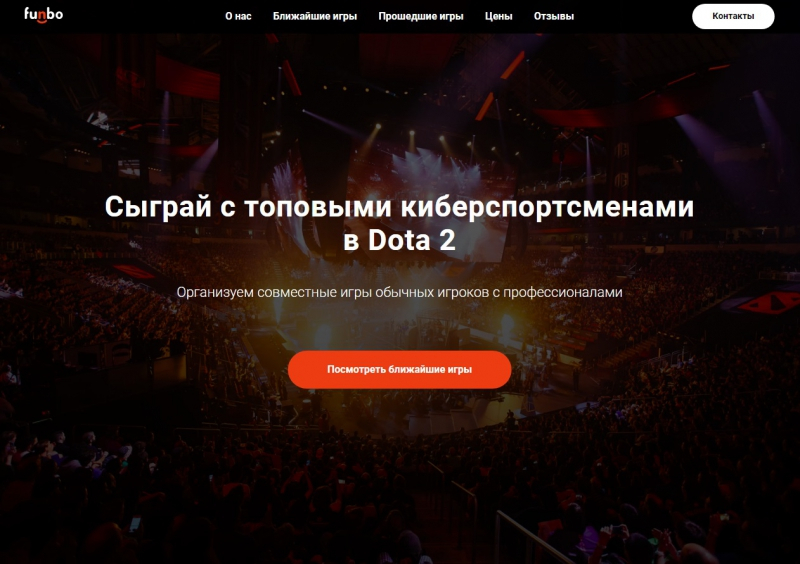
Could you tell us more about this project?
Funbo is a project that initially allowed gamers to play with professional players and streamers. We shortly realized that they wanted to not only play but also to learn. That’s why we came up with educational courses on online games by esports specialists.
We put the project off last August. We reached an audience of up to 16,000 people and launched a paid product that several hundred people used, too. However, the team was totally slammed, and I felt exhausted, too. So, we all decided to continue working and gaining new experience but separately. I wanted to join a great company to acquire useful knowledge and skill, as well as see the work process from the inside.
How did you choose your job?
I sent applications to some reputable companies: Yandex, Aviasales, and Tinkoff. I quickly passed all the tests and interviews at Tinkoff, and they made me an offer. I had to move to Moscow and lived there for a while.
What do you think helped you get a position?
My participation in ITMO Accelerator helped me a lot. I believe that the greatest things at the university are student clubs, ambitious people, and involved professors. I had the chance to learn more about myself and grow a lot. Although Funbo didn't take off, I’m sure it helped me get a job at Tinkoff.
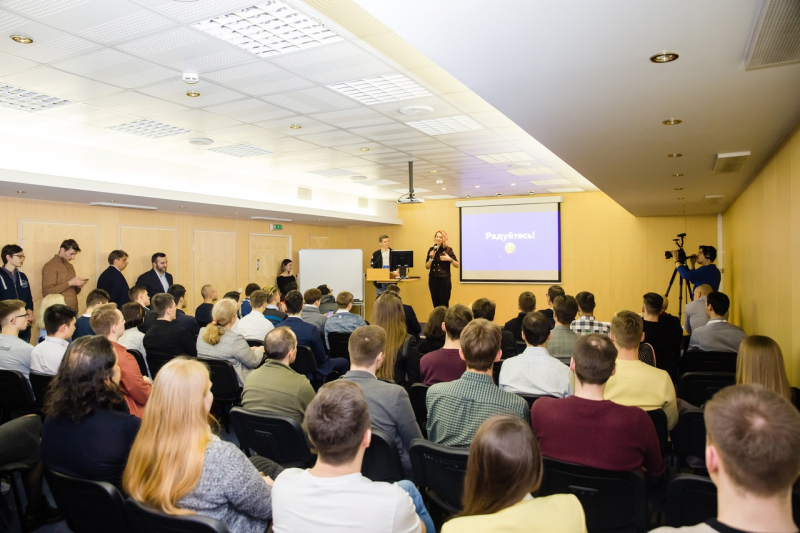
What do you do at the company?
I am a product analyst engaged in recruitment automation and other internal HR projects.
Now you're in a startup again, but a different one. Why did you decide to return to this field?
I knew that working at Tinkoff had its huge advantages, but I wanted more ambitions and energy. While working on Funbo I got to know different people, communicated, and looked for investments. My friend introduced me to Dmitriy Komarevtsev and Sergey Alekseev from CS.MONEY. Dmitriy was impressed with Funbo, and we kept in touch even after the project fell apart.
This August, I returned to St. Petersburg and we decided to do a joint project. We agreed that in October we will try to work together. And while brainstorming ideas for our project, we came up with an idea that later led us to Metrica.
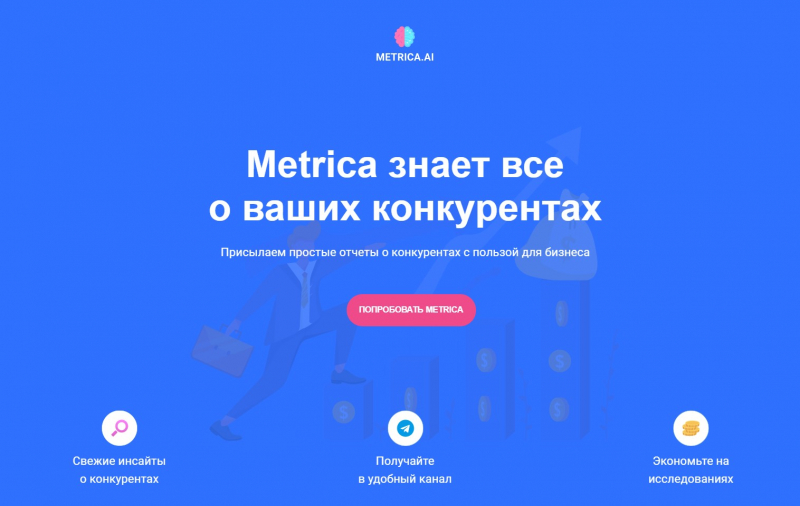
What was the idea?
Our goal was to enter the market of videoconferencing and do something for the people who use it. First, we decided to explore the market, learn more about how much it has grown due to the pandemic and its remote communication trends. To do this, we had to rely on professional platforms such as SimilarWeb, Crunchbase, or Statista. The only thing is, they are high-priced and usually do not imply a one-time use. Besides, some of them collaborate only with legal entities.
That’s why my initial idea was to make a single gateway to these services by hours, days, or weeks. We started looking for people who also did not want to pay so much money. But apparently, it'd infringe the copyright, and we left it alone.
But how did Metrica.Guru come about then?
The communication with potential users helped us realize that some of them are unaware of analytical services or are not ready to understand them yet. However, they still need the information these services can provide. We thought about a service that would easily inform customers about their competitors. That is, we tested one idea, and then, when we analyzed people’s needs, we found a new one and decided to promote it.
What exactly is your service useful for?
We regularly monitor the competitors of our customers, for example, once a week or a month, and send them the most fascinating data so that they wouldn't miss anything. Thus, they have no need to constantly check whether a competitor has purchased new ads, or whether their traffic has increased or decreased because we will provide this information. Also, all of our detailed reports are stored in just one place. As analysts, we select data for the clients that is the most insightful for them.
In your article on vc.ru, you talked about how to communicate with users correctly. Why is this important for a startup?
One-on-one conversations help people understand whether they can trust you or not. You can also learn more about your work and its benefits to society. And even without an actual product, you can still ask your potential customers about their opinion on your idea.
For example, we asked those who responded positively about their reasons and then offered them to test the product. This is how we attracted our first users. Even at this stage, you can charge them for your services and if people are willing to pay you, it means they really need your product. And this is important for all startup founders. You can always return the money, say that the product is still in development, and thank them for their response.
What do you do when people want to test the product but it is not ready yet?
Some can really figure you out and ask you to show the product right away. In this case, you can honestly say that it does not exist yet, and you are just testing the hypothesis. But there will also be those who are interested in the product and will believe in you. Then a prototype can be prepared within a week.
For example, when we did the first sale of Funbo, we only had the hypothesis that streamers and professional players can play with their fans. We created a VK group, invited one streamer, paid him money in advance, started running ads, and offered gamers to play with him for money, and sold tickets. It took us a week to do it.
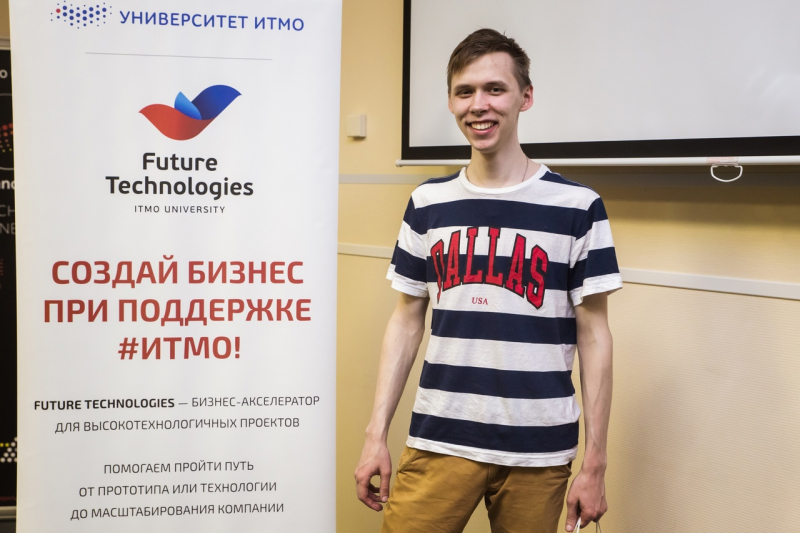
So you can even sell an unfinished product, right?
The main idea behind any startup is to test hypotheses as quickly as possible. If you create a product and only then try to find out if someone needs it or not, you will waste a lot of time, and in 95% of the cases, you won’t find the right audience. And after interacting with users, you can always change something. People would not be offended. Nobody ever said that they were deceived.
From the very beginning, you should not dwell on your product but actually create it. These days, you can test your ideas within a few days and start charging the users. Even if you think that it is hideous and has an ugly interface, but it meets the user's needs, you will even be paid for a prototype. Generally, if you made an MVP and you are not ashamed of it, you probably overdid it.
How do you feel about negative feedback?
As a rule, people do not express negative emotions if you just ask them to talk. Even if one person out of a hundred says something like that, you shouldn't pay attention to this one person, who is not your customer. You need to focus on those who give you valuable information.
There are only three of you in a startup. How do you delegate tasks in order to keep up with everything?
Technically, I am in charge of promotion, presentation, and sale, others are responsible for the technical aspects of the product. But at the early stage, there are practically no areas of responsibility. At the beginning of each, we just discuss and delegate our tasks.
What did the first project teach you?
I’ve learned how to make prototypes, sell them, set up advertising, correctly analyze feedback in order to make thoughtful decisions, and do analytics in general.
Moreover, when we were just starting Funbo, I could not imagine what it would be like to write to a stranger and offer them to have a chat. I thought, "Why would they agree?". But I had to do it, because otherwise, we would have been doing some kind of nonsense, which, most likely, would not be useful to people. I picked myself up and learned that it was not that scary. Plus, a startup is the best simulation of real life and work. Even if you will realize that it’s not for you, it will help you try something else.
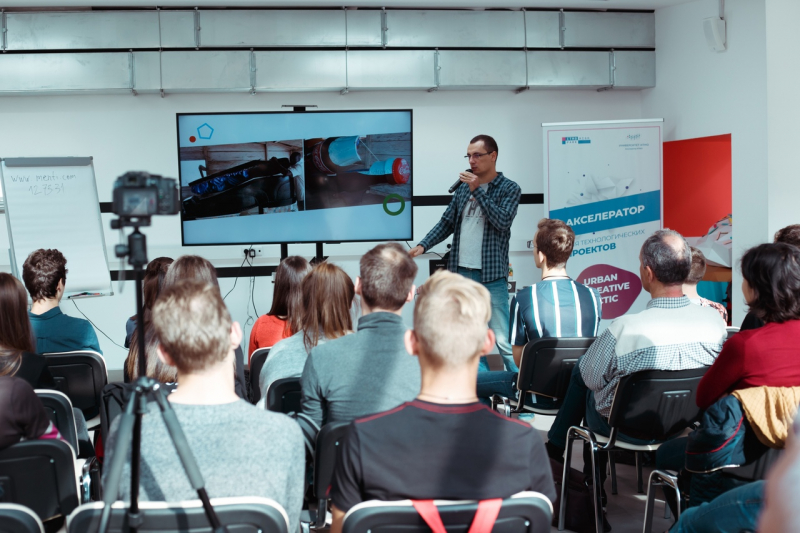
What are your plans now?
We need to understand that we can create a scalable product for a wide range of businesses. Here, it's important to define our target group and find the so-called product market fit. Then we can start investing money in advertising and attract new clients. First, we expect to conclude the first contracts and find about ten key clients.
Are you open to changing your product in any way?
Sure. In the early stages, you need to be as flexible as possible. I have a lot of faith in Metrica. However, the market is harsh, and you may have to change everything. But when you have gone through this more than once, you understand that it is inevitable. Rather, you need to keep track of what opportunities you have and not dwell on your idea. It rarely leads to great results.
Is there someone you look up to in the startup industry?
I wouldn't say I have role models but there are a few people whose ideas I like. I follow the Russian-speaking team who get into Y Combinator. Also recently Mikhail Gavrilov talked at the Accelerator about his international app and how his team test hypotheses.
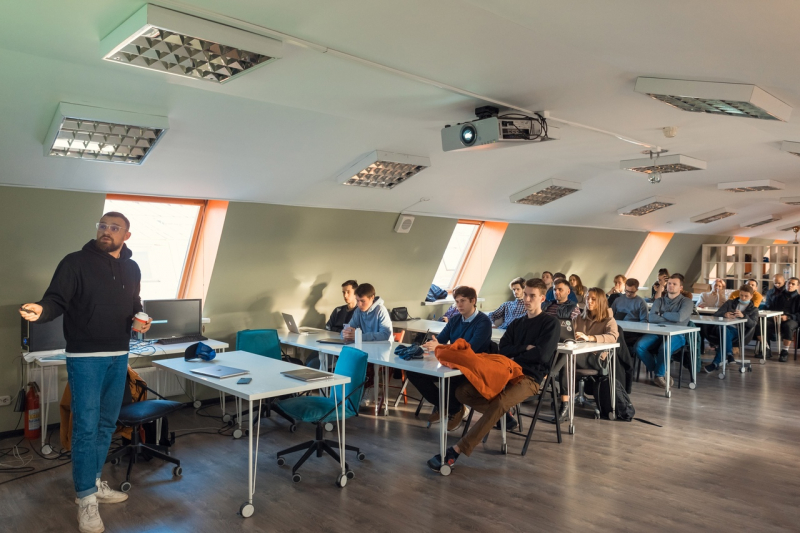
What advice would you give to aspiring startups?
Firstly, you should start talking to people who can suggest the right steps for the current stage of your idea. Despite the fact that we have our own visions, often external feedback can change it for the better. Ideally, you should contact founders who are doing similar projects but have gone a little further. I would also advise you to take part in accelerators and communicate with experts.
Secondly, you can’t do everything on your own, it’s better to have a few people around to support each other and brainstorm ideas.
Thirdly, you shouldn't start coding a product while trying to hide from all problems. You have to get out of your comfort zone and figure out if your product is of any value to the market. Talking to potential customers is just one of many ways. You can google similar startups and investigate the market, but ideally, of course, talk to users yourself.
When you launch a startup, all people are open to you. When others see that you are excited about your project, do something cool, they help you and share their knowledge. It is necessary for startup entrepreneurs to be able to find an approach to different people and learn from their feedback.





